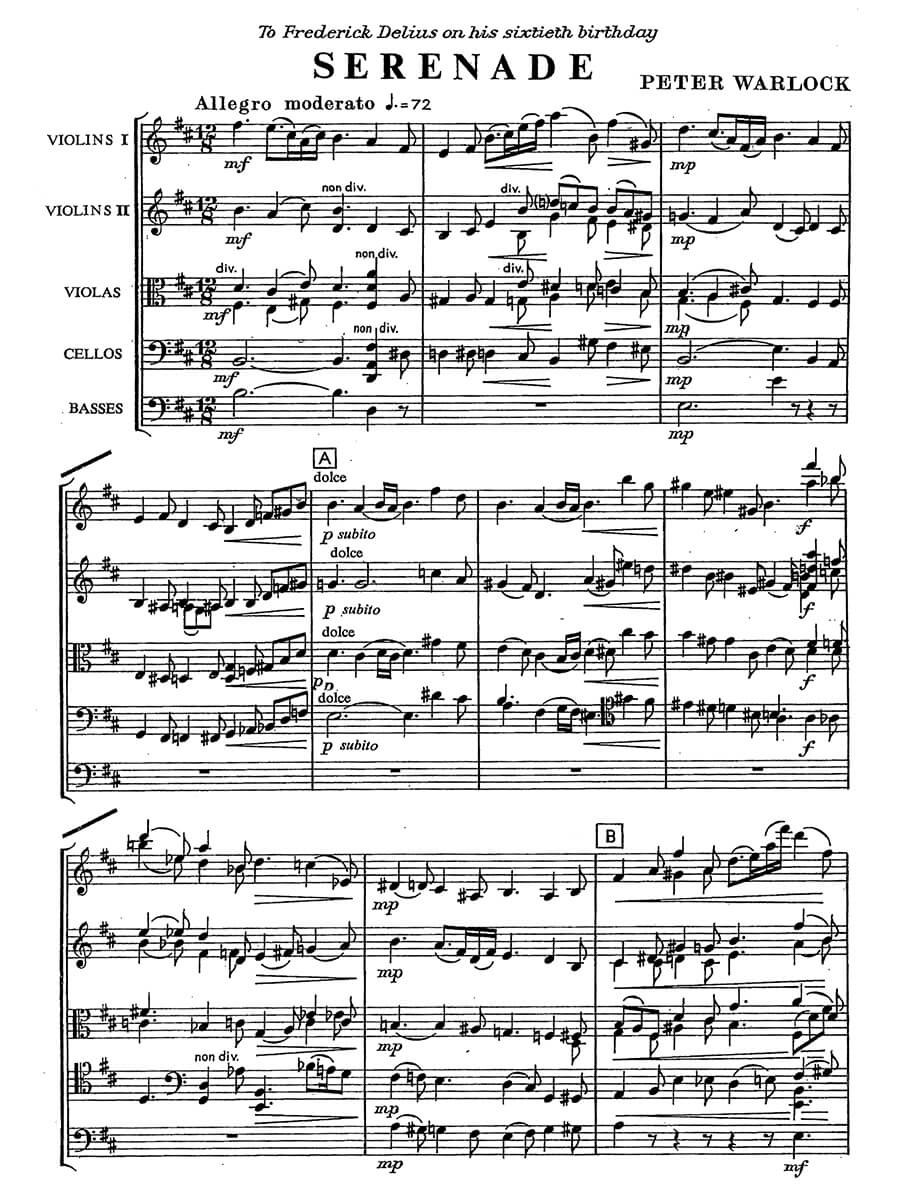Serenade for Strings (score & 5 string parts)
Warlock, Peter
18,00 €
Preface
Peter Warlock – Serenade for Strings
(b. London, 30 October 1894 – d. London,17 December 1930)
Preface
Peter Warlock was the pseudonym of the composer and musicologist Philip Heseltine. He was born in London, where his father was a wealthy solicitor and his mother, his father’s second wife, the daughter of another solicitor. Philip’s father died when the boy was only three years old. Six years later his mother remarried, this time to a Welsh landowner, and the family moved to a village near Montgomery in Wales. Philip developed a lifelong enthusiasm for Celtic culture. He was educated first at a preparatory school in Broadstairs and then at Eton College. There he developed a lifelong fascination with the music of Frederick Delius, which finally became an obsession,. In 1910 he was able to meet Delius at a London concert of his works, which led to a friendship which endured. Delius became his mentor for around seven years. After leaving Eton, Philip spent some time in Cologne and started composing, which Delius encouraged. He wanted to make his career in music but acceded to his mother’s wishes and passed the examinations to secure a place at Christchurch College, Oxford.
He was unhappy at Oxford, and transferred to University College, London, but this was not successful either. In 1915 he obtained a job as music critic of the Daily Mail and abandoned his education. However, the newspaper position only lasted four months and thereafter Philip led an unsettled life. He was briefly intrigued by the writer D. H. Lawrence, but the friendship soured when Lawrence portrayed him unflatteringly under the name of Halliday in his novel Women in Love. Philip sued; the matter was settled out of court but Lawrence had to rewrite certain passages. He married an artists’ model, Minnie Lucy Channing, known as Puma, in 1916, who had already borne him a son, but this did not last and Philip subsequently had a number of affairs and developed a reputation for a wild, Bohemian lifestyle. He spent time in Ireland during the war, to avoid conscription. While there, he took up occult practices, and started signing his compositions Peter Warlock. (A warlock is a male practitioner of witchcraft.) He used his real name for his scholarly and journalistic work. He became friendly with a number of composers and writers on music of the time, including the critic Cecil Gray, the Anglo-Dutch composer Bernard van Dieren and the English composer E. J. Moeran. …
Read full preface / Das ganze Vorwort lesen> HERE
Score Data
| Edition | Repertoire Explorer |
|---|---|
| Genre | String Orchestra |
| Size | 225 x 320 mm |
| Specifics | Set score & 5 string parts |
| Printing | Reprint |
| Pages | 32 |
